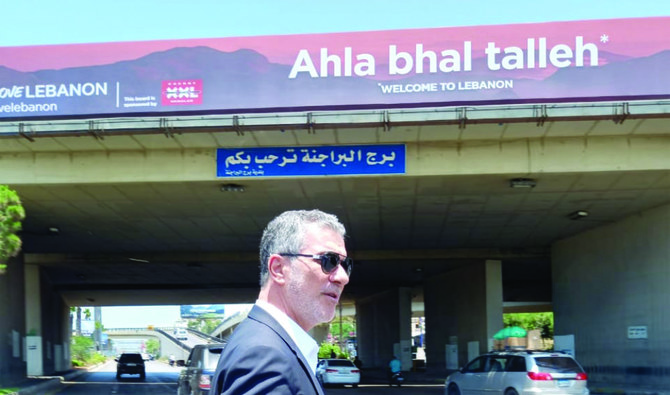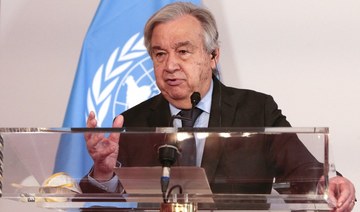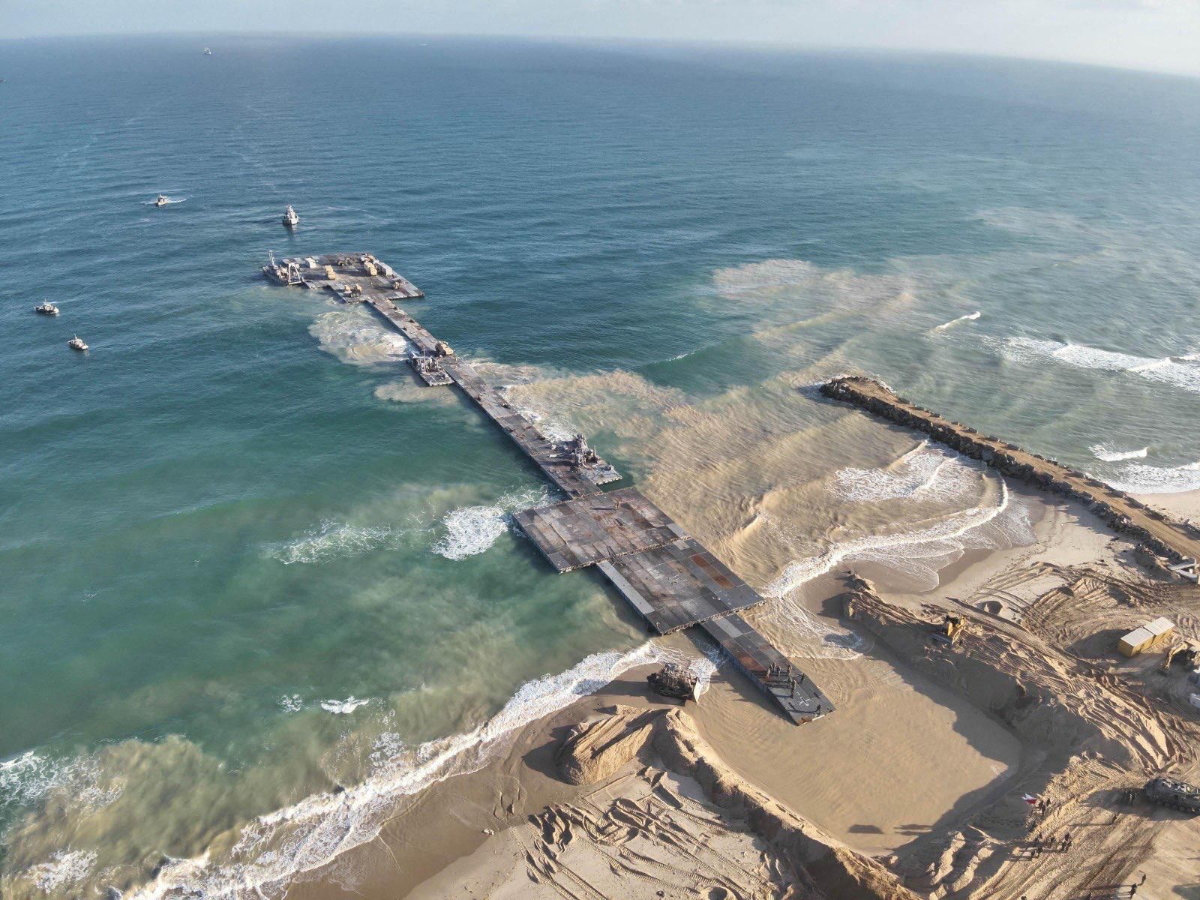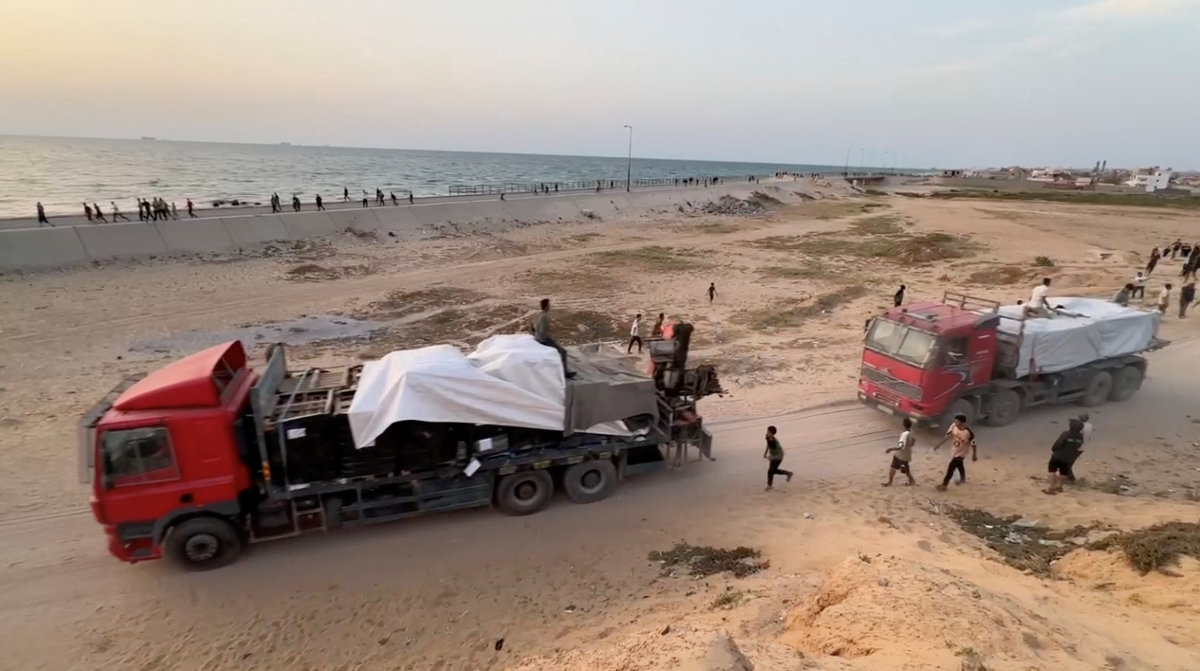BEIRUT: The municipality has recently removed Hezbollah slogans, images and billboards that had been put up for years on the road to the Rafic Hariri International Airport in Beirut.
They have been replaced with welcome signs by the Tourism Ministry to greet tourists and expatriates returning to Lebanon for the summer vacation.
Pictures of Hezbollah leaders and deceased party members, as well as the party’s yellow banners, have long occupied the airport road space on both sides and in the median strip.
The airport road borders the neighborhoods hosting the offices of Hezbollah and the Amal Movement — the two main Shiite parties — and their security zones.
FASTFACT
The removal of the propaganda material came in response to a call by caretaker Minister of Tourism Walid Nassar, who is affiliated with the Free Patriotic Movement, allied to Hezbollah.
The sizes of the pictures almost exceeded that of the houses and small shops located on both sides of the road.
The images were not limited to the party’s Lebanese members but also included Iranian and Iraqi military, religious and political leaders such as Qassem Soleimani, Ayatollah Khomeini, Ali Khamenei and Abu Mahdi Al-Muhandis, so much so that many people who crossed this road were confused as to whether it was part of Lebanon or Iran.
Politicians opposed to Hezbollah often called for the removal of the images, which they described as “provocative to the Lebanese.”
They blamed the state for its compromise with the party or its inability to confront its authority, prominently displayed on the route taken by diplomats and political figures coming to Lebanon.
The removal of the propaganda material came in response to a call by caretaker Minister of Tourism Walid Nassar, who is affiliated with the Free Patriotic Movement, allied to Hezbollah.
Earlier this week, Nassar called on the media administration of Hezbollah and the Amal Movement to reduce the number of images and symbols in the next three months and replace them with pictures of Lebanon’s tourist attractions.
The ministry launched a tourism promotion campaign targeting expatriates and tourists and urging them to visit Lebanon this summer in an attempt to stimulate the stagnant Lebanese economy. The slogans featured in the campaign are “You are Welcome” and “Do you miss Lebanon?”
Nassar’s call to remove the images and slogans was met with widespread criticism on social media.
Activists expressed their displeasure with the “respect” that Nassar said he had for figures represented in the images, who have nothing to do with Lebanon, namely Soleimani (Iranian) and Al-Muhandis (Iraqi).
Activists said that Nassar’s words “reflected a weak state that is incapable of applying the law to Hezbollah and its ally, while it applies the law harshly to the rest of the parties, as it did on June 1.”
But is Hezbollah’s removal of photos on the airport road a kind of self-review in the face of mounting public criticism or is it a temporary response?
Dr. Ahmad Fatfat, head of the National Council to End the Iranian Occupation of Lebanon, told Arab News he believes that “what happened was coordinated between Minister Nassar and Hezbollah in advance and is no more than a temporary step.”
Fatfat, who was interior minister in 2006, said: “Hezbollah may have agreed to this request because it knows that people are fed up with the economic situation that the party has brought them to, and the results of the parliamentary elections showed this restlessness.”
If Hezbollah did not feel that it was losing support, Fatfat added, it would not agree to remove the images and would instead repeat what it did in the summer of 2006 when it provoked Israel’s aggression, which destroyed Lebanon while the presence of tourists and expatriates in the country was at its peak.
Nassar, who visited the airport road, promised that the tourism campaign would cover all Lebanese territories over the next week with more than 150 billboards.
He said the indicators the government has received from the private sector show that the summer season will be very promising in terms of tourism.
Lebanon is counting on tourism this summer — based on flight, hotel and restaurant reservations — to provide the Lebanese economy with some much-needed oxygen to revive it.























